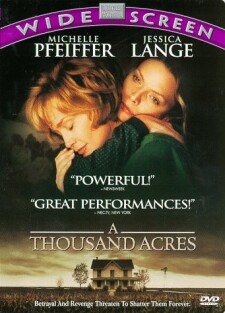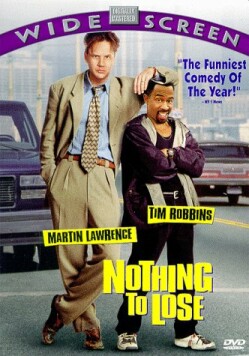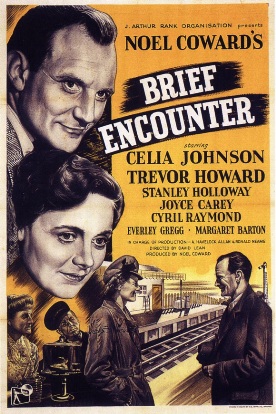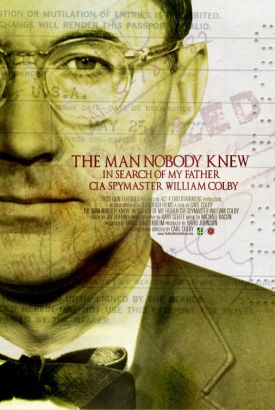Thousand Acres, A
To the question of why anyone would want to rewrite King Lear so as to
make Goneril and Regan the heroines and poor old Lear and (to a lesser extent)
Cordelia the villains, there can only be one answer: in order to make a
revolutionary statement. Jane Smiley’s
A Thousand Acres, now translated to the silver screen by Laura Jones
(writer) and Jocelyn Moorehouse (director) is therefore not just about a
“dysfunctional”
family in Iowa whose patriarch’s
sexual abuse of his two eldest daughters comes out after he passes his
farm — the farm he inherited from his father and grandfather — on to the
next generation. Instead it is a statement of radical feminism. Thus ever, say
Ms Smiley and her adaptors, the
“patriarchy.”
I put that word in quotation marks because I
don’t believe that any such thing
exists.
“Patriarchy”
is the feminist word for social reality — just as
“capitalism”
is the socialist word for economic reality. Both coinages serve the same
political purpose: to suggest, falsely, that there is an alternative reality
which is lacking only the political will to install in place, to the permanent
benefit of human kind. In fact there is not. Reality, as intuition if not
philosophy might have warned us, is reality. What ghastly human consequences
have followed from socialism’s
attempts to replace it our century bears abundant witness, but we are only
beginning to see the results of the politicization of family life. And, if these
results turn out to be less spectacularly horrible, they may in the long run
prove to be even more socially debilitating.
As in every revolution, however, the first task is to capture the culture,
and we should make no mistake about the fact that Ms
Smiley’s novel and the film that has
now been made from it have this object in view. That is the point of taking on
and altering in outrageously anachronistic fashion one of the great monuments of
Dead White Male culture. The same thing is going on in universities all over
America every day. And once the revolutionary cadres have done the things
necessary to undermine those cultural assumptions necessary to sustain the
social fabric, there will be space for two, three many GI Janes to finish
the job and persuade even ordinary people, even people who might be supposed to
possess a modicum of common sense, that the world is not what it is but what the
feminists would like it to be.
Daddy/Larry Cook (Jason Robards) proposes to divide the farm into three with
a portion for each of his three daughters, Ginny (Jessica Lange), Rose (Michelle
Pfeiffer) and Caroline (Jennifer Jason Leigh). Ginny and Rose are married and
live with their husbands on the farm, which the menfolk help the old man to
work. Caroline is the only one who has moved away. She is a lawyer in Des
Moines. “She thought as a lawyer, not
as a daughter,”
Ginny’s voiceover tells us after she
voices her doubts about Daddy’s
arrangements and is instantly disowned by the old man. This is only the first of
many implausibilities in the script. The utter strangeness of
Lear’s disowning Cordelia because of
her refusal insincerely to gush with love like her two sisters has made a weird
sort of sense to audiences for 300 years; the attempted naturalism of
Larry’s cutting off of Caroline
because she attempts to point out that his legal and tax arrangements may not be
as much to his own benefit as he imagines is completely senseless.
“You have doubts,
you’re out, my
girl.” Huh?
Larry’s expectation of a little of
the respect due to an aged parent from his daughters is seen to be completely
illegitimate. First, he is a drunk; second, he is a drunk driver, arrested and
hospitalized; third, he has been given all his life to irrational rages and has
not a leg to stand on when he starts calling his eldest daughter a
“dried up whore
bitch” and insisting that she and her
sister
“can’t
give me orders” when they try to stop
him from driving drunk. And so out into the storm with him. The fact that Harold
(Pat Hingle) in the Gloucester role, and the respectable churchgoers of the
community think that the girls have mistreated their poor old dad is only an
indication of the extent to which respectable churchgoing society is
self-deluded by the myths of patriarchy.
From all that we see of Rose, who is also recovering from a bout of breast
cancer (a shot of her radical mastectomy is another political statement), it is
completely unbelievable that she could have gone for 20 years and upwards
without mentioning this to her older sister, but let that go. She is the one
with vivid memories of the abuse, and she tries to get her older sister to
remember the times “when he went into
your room at night. . .It must have been OK, because he said it was, and he was
the rule-maker.” At first Ginny denies
it, says she has no memory of it, but before long it all comes back to her with
sickening forcefulness.
In view of this main strand of plot material, there hardly seems any point to
the vestige of the Gloucester sub-plot which remains from King Lear. But
I suppose all is grist for the feminist mill. The Gloucester-figure, Harold, has
a prodigal son, Jess (Colin Firth), who is trying to get his hands on the old
man’s farm and who has his hands on
both of Larry’s elder daughters. Ginny
is screwing him because her husband, Ty (Keith Carradine) is weak and boring and
only interested in his hogs, and Rose is screwing him because her
husband, Pete (Kevin Anderson) is a triple threat: a drunk, a wife-beater and
insensitive to her crisis of self-esteem in the wake of her mastectomy. He
“told me when I came back from the
hospital that he’d prefer me to keep
my nightgown on.”
Jess, of course, makes her feel like a woman again. But, lest even one man
come off with any credit (it is of course no discredit to him in the
author’s eyes that he is screwing
other men’s wives), he is two-timing
her with her sister. Jess fades from the scene, Pete is killed and Ginny leaves
Ty to become a waitress and
“independent.”
She and her sister agree, in the
film’s closing passage, that they
“want all of this to stop with our
generation” so, says
Goneril’s voiceover, that
Rose’s
“girls have something that Rose and I
never had: hope.”
Unlike Shakespeare’s tragedy, which
was meant to inspire not hope but pity and fear, A Thousand Acres is
straightforward political propaganda that takes the form of a direct assault on
one of the monuments of Western civilization. But what hope for the rest of us,
we might reflect, poor upholders of the discredited
“patriarchy”
as we are, when there is so little protest against this act of cultural
vandalism?
Discover more from James Bowman
Subscribe to get the latest posts to your email.






